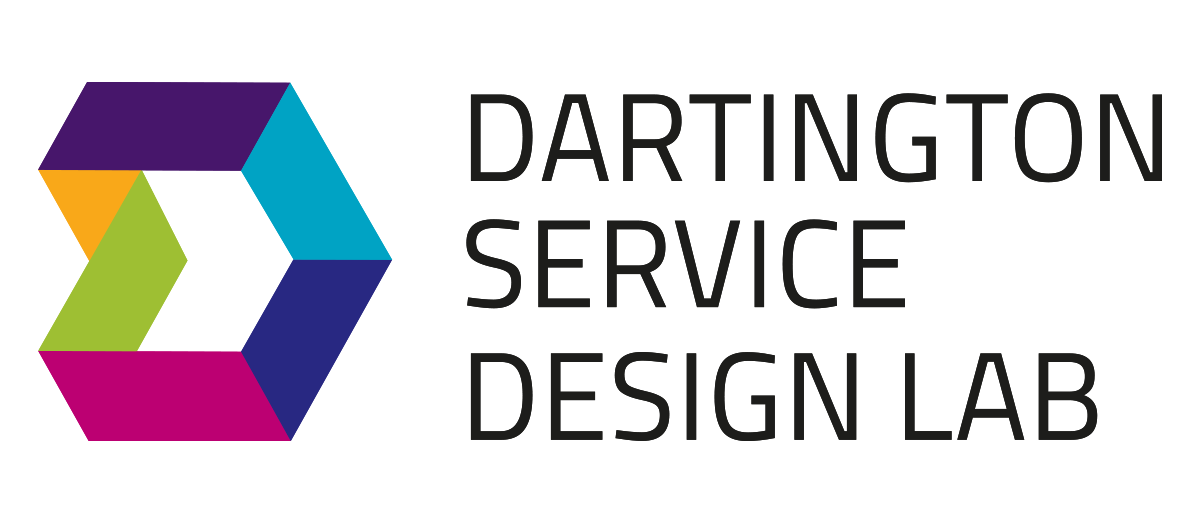Those who know us well will know this is a departure from our area of focus: children, young people, and families. But supporting the use of evidence through co-design and rapid iteration is at the heart of our work. That is why we teamed up with Nesta, the British Heart Foundation (BHF), Macmillan Cancer Support and UCL on the ‘Reimagining Help’ guide, a toolkit for service and system leaders to design support that helps people reach the goals that matter most to them.
Read MoreAfter almost a year of directly engaging with young people from various care settings, we identified the communication needs of individuals and the system-wide needs of practitioners and carers responsible for delivering care within the council. We found that it was important to support ‘meaningful communications’ between young people, practitioners, parents, and caregivers, which formed the basis of the design stages of our work.
Read MoreThe Dartington Service Design Lab joins the Centre for Youth Impact, Research in Practice and the University of Plymouth to form the Learning Partnership for the new Youth Endowment Fund COVID-19 Grant Round. We will focus on understanding the impact of COVID-19 on young people at risk of being drawn into violent crime, and the most effective approaches to reaching, engaging and serving vulnerable young people during the pandemic.
Read MoreAcross our projects at the Dartington Service Design Lab we are seeing many Local Authorities who want to empower parents and other community members to support each other during crucial times – including during children’s early years. The role we play is to ensure that any ‘people powered’ support works in the best way it can. So far, we have learned three key lessons.
Read MoreA tool to help service planners consider and respond to risks posed to children and families during the COVID-19 pandemic and its associated control measures
Read MoreIn a time where everything feels unprecedented and many services are in crisis response mode, we ask the question, what should we prioritise under the “new normal” and what can we do to prepare our resources now? Rachel Lily explores…
Read MoreAt Dartington, and across our sector, we know that co-production is an important feature of good service design and research. But how can we practice what we preach? Chicago Beyond and their partners have been trying to meet this challenge head-on. An impact investor focused on improving young people’s life chances, they’ve called out the power imbalance that often characterises social research and taken big strides to help them and others do something about it. Here, Finlay Green explains what he learned after reaching out to them earlier this year.
Read MoreWe’re ready to generate and synthesise the knowledge that delivery organisations and commissioners need during the COVID-19 crisis. We want to hear from statutory and voluntary sector service providers and commissioners about their most important and pressing needs are. We also want to hear about what sorts of support would be most valuable in applying this evidence. Fill in our five-minute survey now.
Read MoreReflecting on the findings of the Independent Care Review: there’s a big idea at its heart that goes beyond improving outcomes for those with care experience, but are we ready for it?
Read MoreThe COVID-19 emergency is demanding radical changes in how public systems, communities and civil society organisations support those in need across the UK. Funders, Government and Civil Society are rallying in support. With so much activity taking place at an unprecedented pace, it is imperative we learn from elsewhere and each other. We’ll be working with the Collaborative to bring learning from the outside in, and learning from the inside, out. Here we provide a brief overview of how we expect this will look and evolve.
Read MoreIn 2015, the Lab joined forces with the Family Nurse Partnership (FNP) National Unit to collaborate on the ‘ADAPT’ programme, the second generation of the FNP service aimed at improving outcomes for children and young parents and reducing inequalities. We set out to enhance the flexibility of the existing service and improve the efficiency of the programme. Five years after beginning the project, we are pleased to join FNP in launching the final report with all our many learnings and recommendations from the experience.
Read MoreWe wanted to update you on the steps that we at the Dartington Service Design Lab are taking in response to COVID-19.
Read MoreAt Dartington, through experience we have learnt the importance and power of a visual depiction of data to communicate meaning. Done well, this can reduce barriers to understanding the data and address any imbalance between those who hold the information or evidence and those who are interested in understanding it. Here Keira Lowther and Daniel Ellis discuss the power of visualisations and show how they can help us understand systems.
Read More‘Systems Thinking’ is decidedly in vogue - but many working in local government have been thinking in systems for decades (maybe they just didn’t know it). Now is the time to intentionally embrace this way of thinking: to make the most of the current scarce resources, but given all the political promises, to prepare for when the economic tide turns.
[This blog was first published on themj.com website December 18th, 2019]
Read MoreThis year, the Lab, in partnership with Renfrewshire Council, Engage and Renfrewshire Health and Social Care Partnership, hosted a Learning day for the Early Action Systems Change initiative in Renfrewshire. The initiative aims to address two priority challenges: emotional wellbeing of children and young people, and coercive control in adolescent relationships. Ruth Wallace, System Change Lead Officer, from Renfrewshire Council explores what was learned that day, and what is means for the future of the area …
Read MoreThe Hothouses for Innovation initiative is a service design collaboration between the Dartington Service Design Lab and Crisis, the national homelessness charity. The aim: to co-produce, with service users, an adaptation to Crisis’ service that would address a new local challenge. Our researcher, Ben Hartridge, explains why it’s vital that service design doesn’t end with one prototype but extends to trying, testing and improving.
Read MoreThis summer saw the launch of our one-day introductory workshops on Systems Thinking Applied to Children’s Social Care in London and Manchester. These were aimed at introducing the concepts, methods and tools of systems thinking to decision-makers in local authority children’s services. With a new lineup of dates for training, we’re reflecting on the key takeaways for those who attended the sessions, what future attendees expect, and what’s next for us…
Read MoreThe 2019 European Science for Prevention Research conference in Ghent chose to ‘look over the walls’ and promote multidisciplinary work in prevention research. But, as someone who frequently attends conferences and seminars, the word ‘multidisciplinary’ is frequently used, hard to define and difficult to apply.
Read MoreThe Dartington Service Design Lab was commissioned by Save the Children UK to co-design a Toolkit to support place-based efforts to improve children’s early learning outcomes. Our team included experts in child development, evidence-based practice, system-change, and design. Maria Portugal and India Roche reflect on their views as designers developing the Toolkit across different contexts and audiences.
Read MoreSave the Children UK are committed to working in local communities to promote children’s early learning and help narrow the attainment gap for children growing up in poverty, compared to their more affluent peers. To support this, they asked Dartington Service Design Lab to develop a framework that local communities could use to develop an evidence-informed strategy for their area to support improved early childhood development. Tim Hobbs explains why it takes a holistic approach to evidence to make meaningful change.
Read More
















